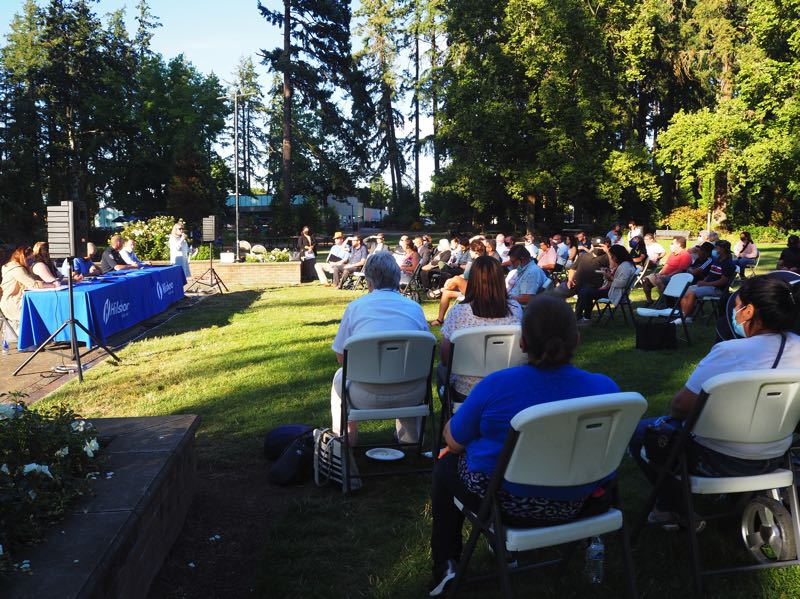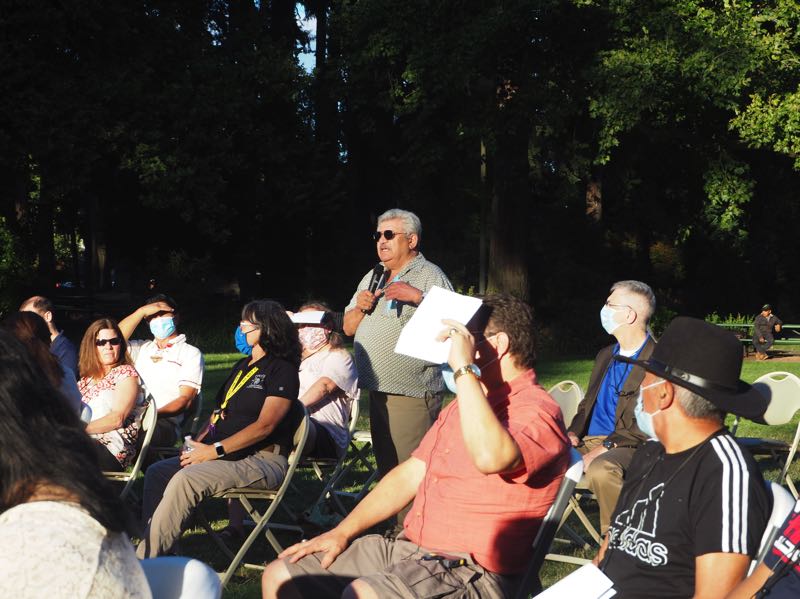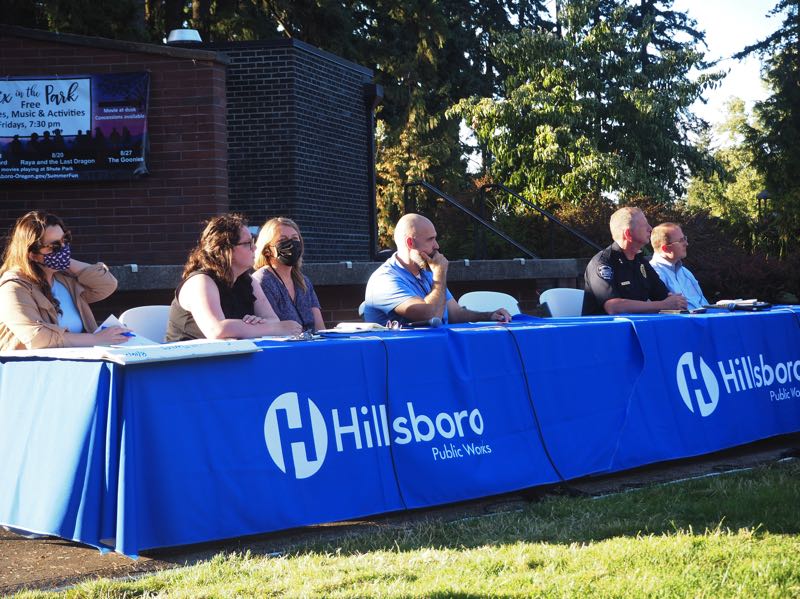PORTLAND, Ore. (PORTLAND TRIBUNE) — It’s become a popular trend, backed by the Legislature and promoted by homeless service providers and local governments.
And in Washington County, three motels have already been converted into shelters this year, offering case management and opening more than 100 rooms to individuals, couples and families.
Shelters in Hillsboro and Forest Gronve were created using funds made available by the Oregon State Legislature for Project Turnkey, which saw 17 motels across the state become shelters for people displaced by wildfires, vulnerable to COVID-19 and/or experiencing homelessness.
The Washington County government and Centro Cultural de Washington County converted the shelters in Hillsboro and Forest Grove, respectively.
Washington County also converted the former Aloha Inn into a shelter, using funds from Metro’s 2018 affordable housing bond. Plans call for it to transition into apartment housing next year, with the Tigard-based Good Neighbor Center as its nonprofit operator.
The approach marks a success in rapidly bringing people off the street.
But the creation of one shelter — the former Econo Lodge in Hillsboro — shows how an urgency to address a worsening regional homelessness crisis can create equity issues in neighborhoods where shelters are placed.
Last month, more than 50 public officials and business owners gathered about a block away from the shelter in Shute Park on Southeast 10th Avenue. Business owners, many of them Latino, wanted to air their concerns — concerns they say were not addressed during the process of planning out and implementing the motel conversion.
The meeting was organized by the Washington County Chamber of Commerce — formerly the Hillsboro Chamber of Commerce — which provided translation devices and interpreters to allow the meeting to be bilingual.
Housing services staff from Washington County who planned the shelter listened to comments and responded to questions for more than two hours.
The Salvation Army previously used the motel throughout the pandemic as a shelter. Washington County took ownership of the building July 1.
After struggling for nearly a year and a half with pandemic-related impacts, business owners say their businesses are now being harmed by an increase in the visibility of homelessness in the area, which they attribute to the creation of the shelter.
The owner of a nearby bakery described how his employees are afraid to take out the trash after recently discovering someone sleeping in the garbage container. He said he has had multiple conversations with customers who expressed concerns about their safety in the area, saying they’re less likely to come to the shop.

A sense that Washington County officials disregarded social and racial justice considerations by placing the shelter in an area with a high number of Latino businesses was more troubling than the shelter itself, business owners said.
“Nobody here is denying that there is a need for homeless shelters and transitional housing,” said Hillsboro City Councilor Olivia Alcaire, who represents Ward 3, an area that includes the neighborhood around the shelter.
“What we’re asking is, ‘Why did you decide to put it here?'” Alcaire asked of county officials.
The area where the shelter is located is an unofficial Latino business district of sorts, with taquerias, Mexican bakeries, markets and other businesses catering to the community.
“We all have the same question: Why here?” a business owner who identified himself as Andres told officials. “Because this is a cheap community — that’s the way people look at it.”
Speakers criticized county officials for not conducting outreach to the community and incorporating feedback into the project before moving forward with it.
The meeting in Shute Park was the fourth time the community has had a scheduled opportunity to provide feedback to the county. Each of those opportunities occurred after the county announced plans for the project.
“Picture, if you would, this project being placed in your community without being asked, ‘How do you feel about that?'” said Hector Hinojosa, a longtime advocate from the Latino community in Washington County. Hinojosa’s parents co-founded Centro Cultural.

“Damage has occurred,” Hinojosa said.
Josh Crites, assistant director for Washington County’s department of housing services, said the county had to act quickly with a limited amount of time to secure funds for the project while trying to address increasing homelessness, the need to shelter people vulnerable to COVID-19, and a lack of affordable housing.
“We’re looking to be responsive to these concurring crises,” Crites said, adding that of the three buildings considered for conversion in Hillsboro, the Econo Lodge was the best option to meet requirements for cost, sheltering capacity, access to public transit, and proximity to support resources such as healthcare.
In addition to specific concerns about the shelter, business owners also expressed concerns about homelessness in the area broadly.
Crites said the purpose of the shelter is to alleviate those broader concerns.
“We’re hoping to find places for people to go where they don’t have to sleep in your doorways, where they don’t have to go to the bathroom outside,” Crites told the audience. “When we have opportunities to get folks inside, where they have a bathroom, where they have a place to sleep, where we can connect them to services, we have a much better opportunity to help them with their behavioral health challenges.”
Crites and other Washington County officials acknowledged that they did not do enough to involve the community in creating the project. They stated a commitment to working closely with the community on solutions to their concerns in the future.
“The truth is, we did make this decision and we did not take this community’s thoughts into account,” said Emily Roots, a spokesperson for Washington County housing services. “We cannot go back in time — there’s no time machine — we can only move forward.”
Roots said the county is trying to be responsive to concerns, mentioning how the county has waived its no-smoking policy at county facilities to ensure that shelter guests don’t smoke near businesses.
The county has worked with the shelter’s operator, Greater Good Northwest, to ensure two behavioral health staff are on-site around the clock, she said.
County officials also want to develop a “good neighbor agreement” for the site in partnership with Greater Good Northwest and local businesses. Such agreements function as a set of mutually agreed-upon rules. Roots said in an email the process for creating the agreement would include “bilingual, Latinx facilitators to ensure the process is accessible to the communities most impacted.”
Additionally, the county plans to work with the Washington County Chamber of Commerce to identify potential economic development resources to support businesses in the area, Roots said in an email.

The Portland Tribune is a KOIN 6 News media partner.
